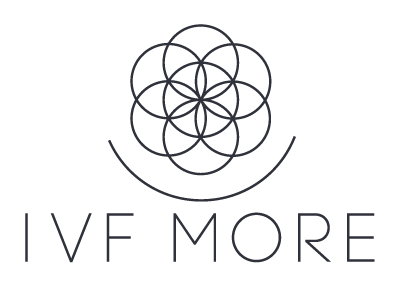Egg Quality vs. Egg Quantity: What Matters Most in IVF Success?
October 2025

Introduction
When couples or individuals begin exploring IVF (In Vitro Fertilization), one of the most common questions is: what matters more — the number of eggs or their quality?
The short answer is that both egg quality and egg quantity are important for fertility, but they affect IVF outcomes in different ways. While quantity determines how many eggs are available for fertilization, quality determines whether those eggs can develop into healthy embryos that lead to a successful pregnancy and, eventually, a baby in your home.
In this article, we’ll explore the difference between egg quantity and egg quality, how they change with age, and how science — including advanced techniques like IVF MORE® — is helping improve fertility outcomes for women worldwide.
Understanding Egg Quantity: The Ovarian Reserve
Every woman is born with a finite number of eggs, known as her ovarian reserve. Unlike men, who produce sperm throughout their lives, women cannot create new eggs after birth. Instead, this reserve gradually declines over time.
Key Facts About Egg Quantity
- At birth: around 1–2 million eggs.
- By puberty: around 300,000–400,000 remain.
- By age 37: approximately 25,000 eggs.
- By age 40: fewer than 10,000 eggs remain.
Each month, a small group of eggs begins to mature, but usually only one is released during ovulation — and hundreds of others are lost naturally. This gradual decline in quantity continues until menopause.
How Egg Quantity Is Measured
Fertility specialists use several tests to estimate ovarian reserve:
- Anti-Müllerian Hormone (AMH): Indicates the number of eggs remaining.
- Antral Follicle Count (AFC): Ultrasound measurement of small follicles in the ovaries.
- Follicle-Stimulating Hormone (FSH): High levels may suggest a lower ovarian reserve.
A low ovarian reserve means fewer eggs are available for retrieval during IVF, but it doesn’t automatically mean pregnancy is impossible. The key lies in the quality of the remaining eggs.
Understanding Egg Quality: The Genetic and Cellular Component
If quantity is about “how many,” then quality is about “how good.” Egg quality refers to the egg’s ability to mature properly, be fertilized, and develop into a healthy embryo.
High-quality eggs have the correct number of chromosomes and sufficient energy (from healthy mitochondria) to support early embryo development. Poor-quality eggs, on the other hand, may have chromosomal abnormalities that prevent successful implantation or cause early miscarriage.
How Egg Quality Is Affected by Age
- After age 35, egg quality starts to decline noticeably.
- By 40, only about 20–25% of a woman’s remaining eggs are considered chromosomally normal (euploid).
- The decline continues gradually until menopause.
This decline is primarily due to aging cells, oxidative stress, and mitochondrial dysfunction, which reduce an egg’s ability to divide correctly.
Why Egg Quality Matters More Than Quantity
Even if a woman has thousands of eggs, if those eggs are of poor quality, her chances of achieving a healthy embryo are reduced. Conversely, a woman with fewer eggs but good quality may have a higher chance of success in IVF. In short: quality often outweighs quantity when it comes to having a baby in your home.
How Egg Quantity and Quality Work Together in IVF
During an IVF cycle, both quantity and quality matter because they complement each other.
- Quantity increases the probability of retrieving mature eggs, giving embryologists more chances to select healthy embryos.
- Quality determines whether those embryos can develop normally and implant successfully.
Think of it like this: quantity gives you more lottery tickets; quality determines whether any of them is a winner.
Why You Need Both in Balance
- Too few eggs = limited options for fertilization and embryo selection.
- Poor-quality eggs = more embryos with chromosomal issues, leading to lower implantation rates.
- Optimal IVF outcomes come from retrieving a good number of high-quality eggs.
How Science Helps Improve Both Egg Quantity and Quality
While age and genetics naturally influence egg health, science has developed advanced methods to help improve and preserve fertility.
1. Fertility Preservation (Egg Freezing): Women who want to delay motherhood can freeze their eggs at a younger age, when egg quality is higher. This allows them to use those eggs later in life, improving IVF success rates.
2. Regenerative Medicine and IVF MORE®: IIVF MORE® (Magnetic Ovulatory Restoration) goes beyond traditional IVF by addressing egg metabolism and cellular energy.
This innovative technique combines micromanipulation, regenerative medicine, and magnetic field technology to:
- Revitalize eggs affected by age or conditions like endometriosis or PCOS.
- Restore mitochondrial function and improve cellular vitality.
- Increase the likelihood of obtaining viable embryos capable of healthy development.
While no treatment can guarantee a 100% success rate, IVF MORE® represents a major scientific step toward improving egg function and embryo potential, offering new hope for women who wish to have a baby in their home after 40.
3. Nutritional and Lifestyle Optimization: Science shows that lifestyle choices play a measurable role in egg health. For example:
- A diet rich in antioxidants and omega-3 fatty acids supports mitochondrial function.
- Regular moderate exercise improves blood flow to the ovaries.
- Avoiding smoking, excessive alcohol, and environmental toxins protects egg DNA from damage.
Common Myths About Egg Quantity and Quality
Let’s clear up a few misconceptions that often cause unnecessary anxiety:
- Myth 1: “If I have a high AMH, I’ll definitely get pregnan”: A high AMH means you have more eggs, but it doesn’t guarantee that those eggs are of good quality.
- Myth 2: “After 40, it’s impossible to have a healthy baby”: While chances decrease with age, modern fertility treatments — including IVF MORE® — have helped many women over 40 have children successfully.
- Myth 3: “Egg quality can’t be improved”: Although we can’t reverse time, scientific advancements in cellular therapy, regenerative medicine, and improved ovarian environments can enhance egg potential.
When to See a Fertility Specialist
If you’ve been trying to conceive for six months or more (and are over 35), it’s recommended to consult a fertility specialist. Testing your AMH levels, FSH, and antral follicle count can help determine where you stand and what strategies may be most effective.
During your consultation, your doctor may discuss:
- Options for IVF or IVF MORE®.
- Egg or embryo freezing.
- Lifestyle modifications to optimize fertility.
- Supplementation (e.g., CoQ10, vitamin D, folate) to support egg health.
Early assessment allows you to act proactively — before egg quantity or quality declines further.
Egg Quality vs. Egg Quantity: A Scientific Perspective
- Definition
- Egg Quantity: Number of eggs available in the ovaries (ovarian reserve).
- Egg Quality: An egg’s ability to mature, be fertilized, and form a chromosomally normal embryo.
- Main Influences
- Quantity: Age, genetics, baseline ovarian reserve.
- Quality: Age, oxidative stress, mitochondrial function, lifestyle factors (nutrition, toxins, sleep, stress).
- How They’re Assessed
- Quantity: Measured indirectly via AMH, Antral Follicle Count (AFC), and FSH.
- Quality: Not directly measurable; inferred from embryo development, PGT-A results, implantation, and miscarriage rates.
- Impact on IVF
- Quantity: More eggs → more oocytes retrieved → more embryos to select from.
- Quality: Higher-quality eggs → higher likelihood of euploid embryos, implantation, and live birth (i.e., a baby in your home).
- How Modifiable Are They?
- Quantity: Only partially (largely biological and age-dependent); can be preserved earlier via egg freezing.
- Quality: Somewhat modifiable/supportable through lifestyle optimization, targeted supplementation (medical guidance), and advanced approaches like IVF MORE® that aim to improve cellular/mitochondrial function.
- Key Takeaway
- Both matter, but quality often weighs more for embryo viability; the best outcomes come from enough eggs with good quality.
The Role of IVF MORE® in Optimizing Egg Health
At IVF MORE®, we take fertility science one step further. By combining magnetic field technology with micromanipulation and cellular regeneration, IVF MORE® aims to restore the natural vitality of eggs affected by aging or poor metabolic function.
This advanced approach has shown promise in improving:
- Egg structure and division capacity
- Embryo viability rates
- Overall fertility potential
For many women who have experienced multiple failed IVF attempts, this technology represents renewed hope — and a tangible possibility of having a baby in their home.
Conclusion
When it comes to IVF success, both egg quantity and quality matter — but egg quality is the true key to achieving viable embryos and successful outcomes.
While age is a natural factor that influences fertility, science continues to offer new possibilities for women who dream of becoming mothers later in life.
From IVF MORE® to improved lifestyle choices and early fertility assessment, there are more options than ever before to preserve, protect, and enhance your reproductive potential.
If you’re considering IVF or wondering how to improve your chances, the best next step is to speak with a fertility specialist who understands both the science and emotion behind this journey. Interested in learning more about how IVF MORE® can help improve your egg health and optimize IVF outcomes? Contact our team today to schedule a consultation and discover how science can support your dream of having a baby in your home.
